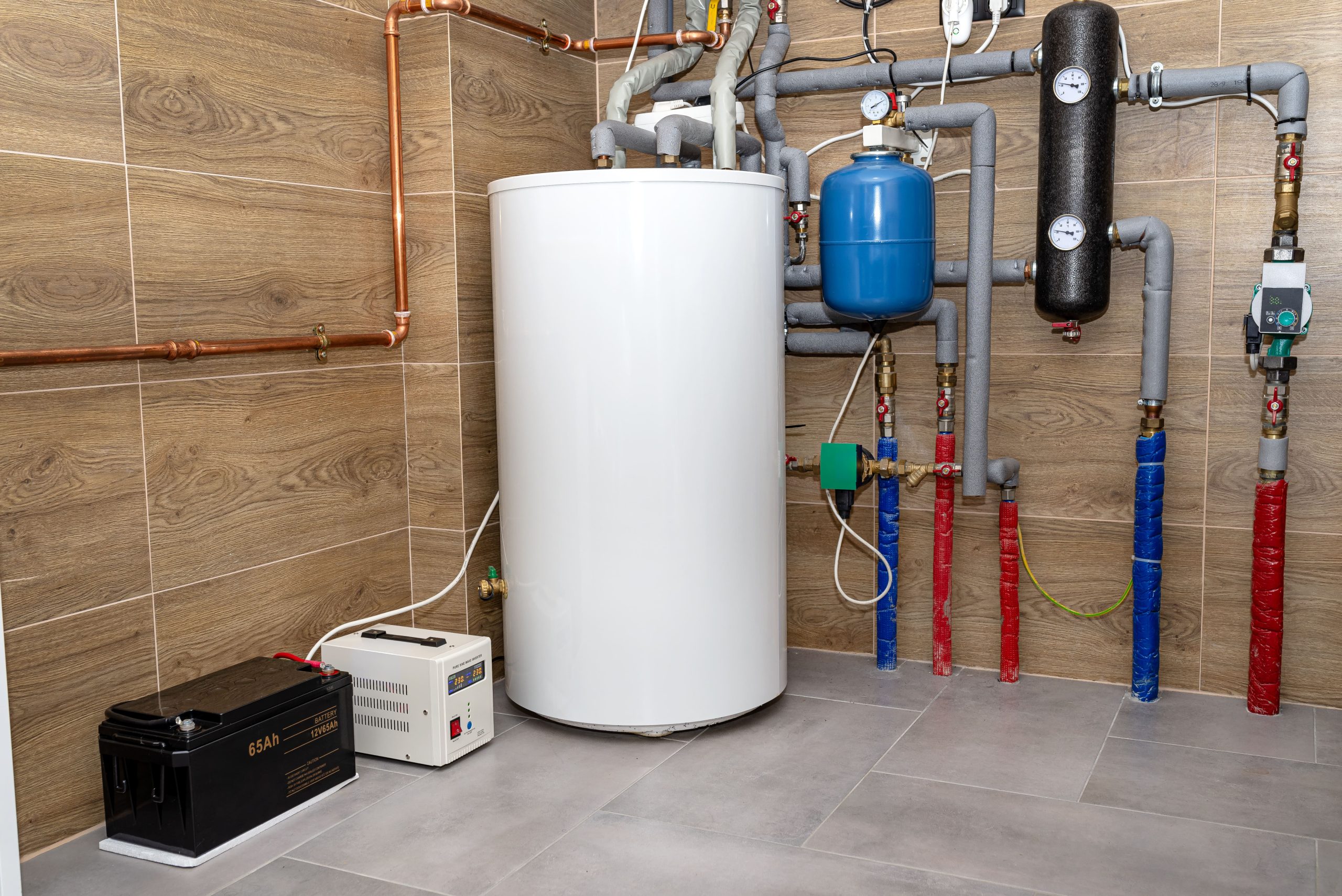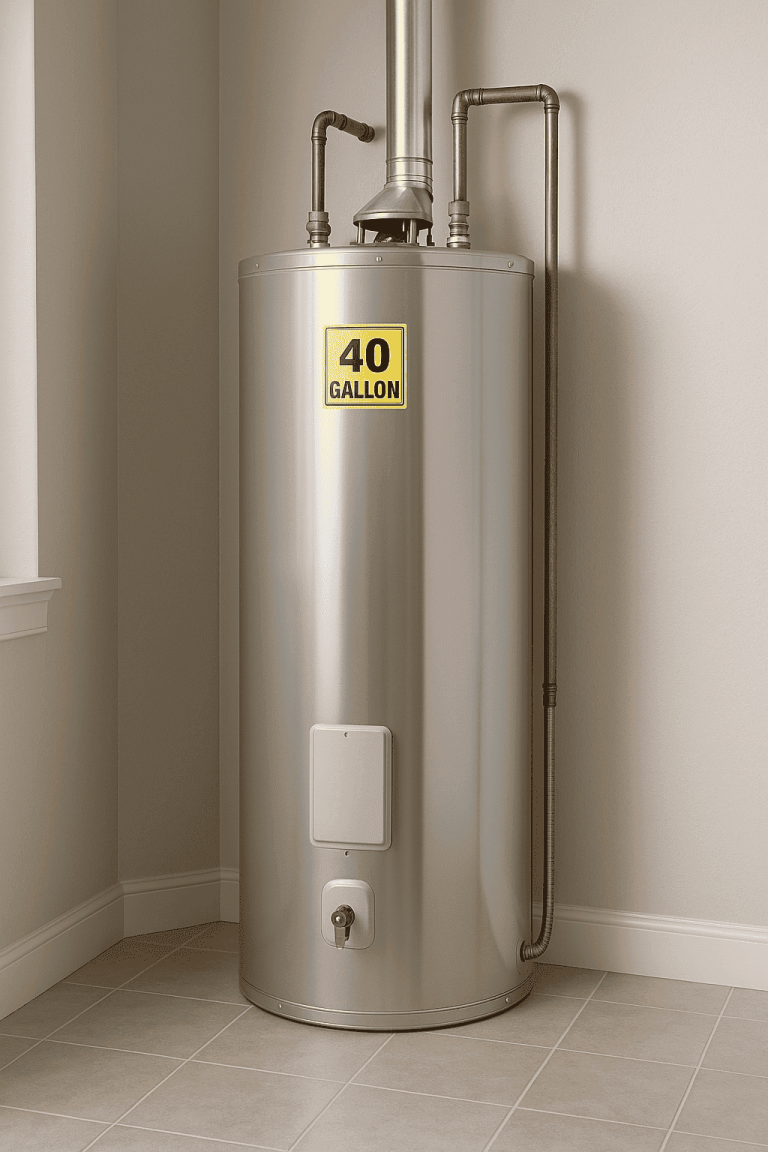Ultimate Guide to Gas Water Heaters Installation, Types, and Benefits
Ultimate Guide to Gas Water Heaters: Installation, Types, and Benefits A gas water heater is a reliable product that heats…
Ultimate Guide to Gas Water Heaters: Installation, Types, and Benefits
A gas water heater is a reliable product that heats water using natural gas as its primary energy source. It is popular among homeowners due to its cost-effectiveness, efficiency, and ability to provide hot water quickly. Whether for residential or commercial use, gas water heaters are known for their performance and advanced features. Some homeowners also explore propane and natural gas alternatives when access is limited. For many, the natural gas water heater offers a dependable supply of hot water year-round.
Types of Gas Water Heaters: Tank vs. Tankless
Tank Gas Water Heater: Traditional and Trustworthy
A tank water heater stores a fixed gallon capacity of hot water, ready for use. It’s an excellent tool for households with high hot water demand. These tank water heaters are available in various brands and models, offering consistent heat delivery and different warranty periods based on the product you choose. Gas tank water heaters typically have a BTU rating that determines how quickly they can heat water.
Tankless Gas Water Heater: Compact and Energy Efficient
A tankless water heater, also called an on-demand product, heats water as needed. This tool is ideal for small spaces, offering clean, endless hot water without taking up much room. Tankless water heater installation requires professional expertise due to vent and gas line requirements. This model is also available in propane variants, perfect for off-grid homes. The gas tankless options are especially useful in homes focused on high efficiency and reducing energy bills.
Benefits of Choosing a Gas Water Heater for Your Home
Energy Star® certified water heater models save on utility bills and improve efficiency.
Faster heat delivery compared to electric water heaters.
Flexible options for both residential and commercial settings.
Trusted product lines from leading brand manufacturers, such as Smith.
Extended warranty options with most water heater purchases.
Key Features to Consider When Shopping for a Water Heater
Capacity and Gallon Size
Select a water heater with the right gallon capacity for your household. A family of four typically needs a 40-50 gallon tank model, while a tankless water heater should support 7-10 gallons per minute, depending on peak hot water usage.
Energy Efficiency and Fuel Type
Opt for Energy Star rated products for maximum efficiency. Consider natural gas as a primary fuel source or liquid propane if natural gas is unavailable. While electric water heaters are also common, gas models offer quicker heat recovery and efficient supply.
Venting and Installation
Proper vent installation is essential for safety and performance. Whether you’re upgrading or installing a new gas water heater, it’s wise to involve a professional to plumb and secure the product. Look for units with high BTU output and water heater accessories to match your plumbing needs.
Installation Tips for Gas Water Heaters
DIY vs. Professional Installation
Though some may attempt DIY water heater installation, hiring a licensed expert ensures proper vent, gas line, and water connections. This is especially important for tankless water and high-capacity tank models. Professionals will use the correct hardware, ensure code compliance, and test the appliance before final handover.
Residential and Commercial Installation
In residential installations, safety codes must be followed precisely. For commercial properties, larger tank sizes and additional permits are often required. The product and installation price can vary widely depending on the model and volume.
Cost, Rebate, and Warranty Options
Consider the total cost including labor, unit price, and available rebate programs. Many brands offer extended warranty periods, giving peace of mind to homeowners looking for reliable hot water heater solutions. Be sure to review the BTU specifications and potential rebates for high efficiency models.
How to Shop Water Heaters Wisely
Where to Shop Water Heaters
Visit a nearby shop or browse online to shop water heaters from trusted brands. Always compare product specifications, model reviews, warranty, and rebate eligibility to get the best value. Many stores also provide water heater accessories and help with selection.
Choosing the Right Brand and Model
Leading brands such as Rheem, AO Smith, and Bradford White manufacture reliable tank and tankless water heater units. Review customer feedback and verify the product has the capacity and features suitable for your needs. Choose the right water heater based on your household demand, available fuel type (propane and natural gas), and storage space.
House Tips Before Purchase
Before you buy, consider your household’s hot water needs, space for the tank, and fuel availability (i.e., natural gas, propane, or electric). Evaluating these details helps you choose the most efficient water heater type for your home.
Maintaining a Gas Water Heater for Longevity
Periodically flush your tank to remove sediment buildup.
Inspect vent and gas lines annually.
Test the pressure and temperature relief valves for safety.
Schedule regular maintenance with a pro to ensure your gas water heater is functioning efficiently. Check the BTU rating and verify proper airflow.
Choose the Right Gas Water Heater for Your Residence
A natural gas water heater is an essential product that delivers consistent heat and dependable hot water. Whether you’re considering tank or tankless water systems, make sure to assess efficiency, installation needs, warranty, and rebate options. Take time to evaluate each water heater model, its capacity, BTU rating, and available features. The right choice will ensure lasting comfort and energy savings in your household. Explore water heaters available today at your local shop or hardware supply center.
This comprehensive water heater guide is a valuable tool for anyone ready to upgrade or replace their current appliance with a more energy-efficient, natural gas powered system.


